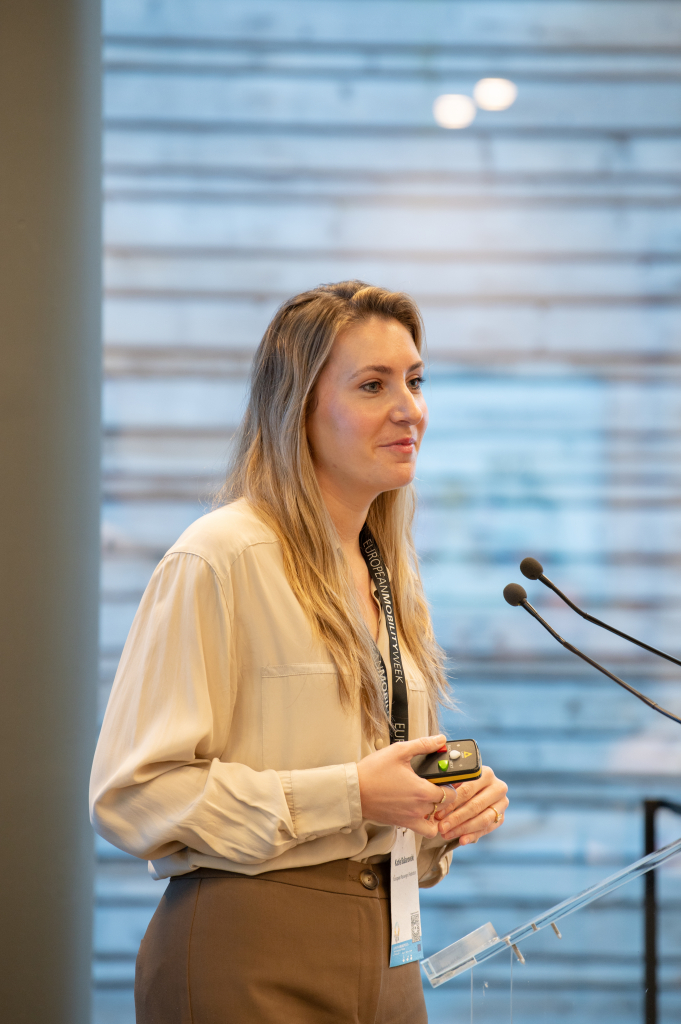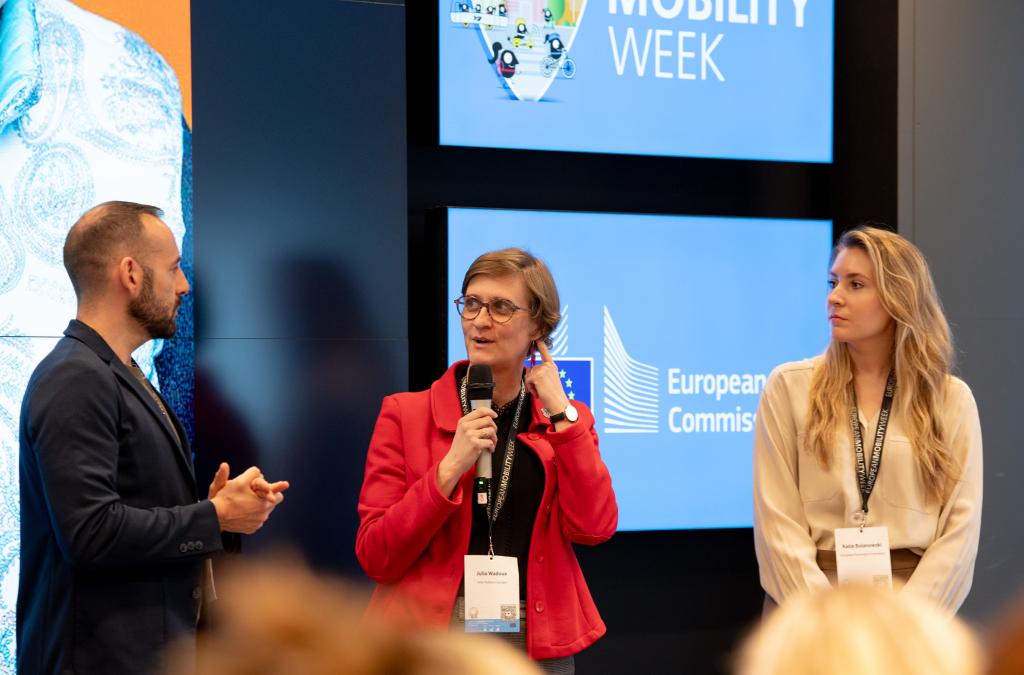On March 27th, Katie Bulanowski participated in the European Mobility Week Workshops in Brussels.
European Mobility Week is the European Commission’s annual awareness-raising campaign focused on promoting active mobility, public transport, and other sustainable transport modes. For one week each year, local authorities across Europe are encouraged to take actions towards more sustainable mobility by for example testing new mobility solutions or addressing transport challenges in their cities. The European Mobility Week will take place between 16-22 September, and culminates in a Car-Free Day.
This year’s European Mobility Week theme is “Mobility for Everyone,” with the goal of reducing barriers in accessing sustainable transport options and tackling transport poverty. The European Mobility Week workshops in March aimed to both inspire and familiarise the campaign’s national coordinators and other relevant stakeholders with the theme.
EPF strongly supports this theme, as it aligns with its core objective to support the establishment of user-centric mobility services that are affordable, reliable, sustainable, coordinated and accessible to all. Everyone, regardless of their circumstances, should be able to get comfortably to where they want to go, when they want to go there, and with whichever (combination) of modes they’d like. To make this happen, the transport system needs a greater focus on end-users – including vulnerable to exclusion groups who may be at risk of transport poverty.
In her presentation “Transport Poverty: the users’ perspective,” Katie shared how diverse (and often intersecting) factors such as age, income, living situation, and education can influence people’s mobility choices and result in transport poverty. Katie also highlighted some relevant EPF projects that are working towards more inclusive and sustainable mobility:
- The UPPER project is implementing a combination of push and pull measures to positively influence users’ choices. At the same time, the project’s Mobility-as-a-Right (MaaR) strategic vision aims to ensure that all citizens are considered, regardless of their physical and mental capabilities or social and economic background.
- Similarly, the InclusiveSpaces project specializes in the inclusive design and evaluation of urban spaces, focusing on accessibility and social cohesion. For this purpose, the project is developing a set of assistive technologies and tools that include, for example, a travel demand data and accessibility evaluation tool, a comfort-based accessibility mapping tool, a routing tool for visually and mobility-impaired individuals, digitised accessibility audits for buildings and public spaces, and a Universal Design Manual for the Built Environment.
Katie’s presentation was followed by Julia Wadoux, Policy Manager at AGE Platform Europe, who dove deeper into the needs of older people and the challenges they often face in their daily mobility.
After an inspiring day, we look forward to discovering how cities are tackling these issues during European Mobility Week in September!
All workshop presentations are available on the European Mobility Week website: here. We highly recommend reviewing them!




 Stay informed!
Stay informed!